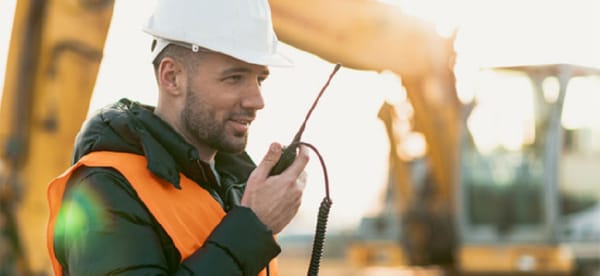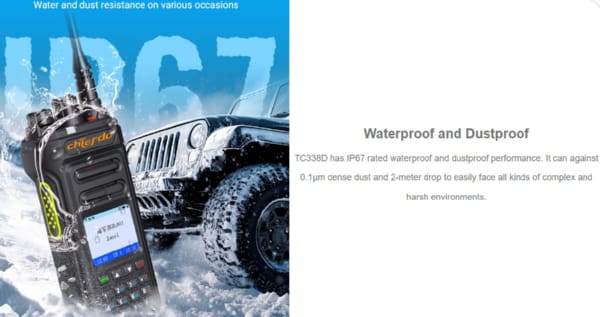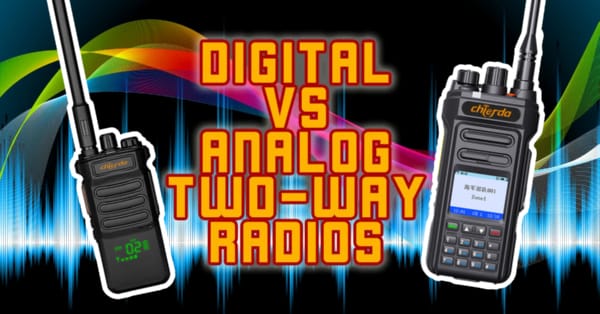On a busy construction site, clear and instant communication is not a luxury—it's the backbone of a safe and efficient operation. From coordinating crane movements to ensuring personnel safety in hazardous areas, every message counts. How to improve construction site communication when standard methods fall short? This guide will walk you through why a professional construction walkie talkie is your most reliable tool and how to choose the right one for your project.

Why Your Smartphone Isn't a True Construction Communication Tool
Many teams wonder, can I just use my phone on a jobsite? While smartphones are great for many things, they have critical limitations in a construction environment that a dedicated jobsite radio easily overcomes.
Signal Reliability and Dead Zones
Cellular signals are notoriously unreliable in basements, concrete structures, or remote sites. A dropped call during a critical operation is a major safety risk. Professional two-way radios, however, operate on dedicated frequencies, ensuring consistent signal penetration and coverage.
Durability and Environmental Hazards
A construction site is tough on electronics. Dust, water, and accidental drops can instantly destroy a fragile smartphone. A durable two way radio is built to withstand these harsh conditions, often with certified IP ratings for water and dust resistance.
Distractions and Lack of Instant Group-Call
Smartphones are filled with distractions. More importantly, they lack the instant, one-to-many push-to-talk functionality that is essential for coordinating entire teams simultaneously. A single press on a professional two way radio connects you to everyone instantly.
4 Must-Have Features of a Heavy Duty Radio for Construction
When selecting a radio, what radio do construction workers use? They use devices built for the job. Here are the four non-negotiable features you should look for in any heavy duty radio.
Unmatched Durability: Look for Rugged, Drop-Resistant Designs (IP Ratings)
Your radio will be dropped, bumped, and exposed to the elements. A rugged two way radio with a solid polycarbonate shell is essential. Look for models with an IP67 rating, which means the device is fully dust-tight and can be submerged in water. An ip67 waterproof radio ensures it survives rain, mud, and more.

Uninterrupted Coverage: The Power of Long Range Communication
Large construction sites require radios that can cover significant distances and penetrate obstacles like steel and concrete. High-power radios (5W or 10W) provide the necessary long range communication. This ensures your team stays connected, from the ground floor to the top of the skyscraper.
Crystal-Clear Audio: Noise-Cancelling for Loud Jobsites
With the constant sound of machinery, clear audio is vital for communication safety. A noise cancelling radio uses advanced technology to filter out background noise, so every command is heard loud and clear, preventing costly and dangerous misunderstandings.
All-Day Reliability: Choosing a Radio with Long Battery Life
Shifts on a construction site are long, and your communication tools need to keep up. A long battery life radio, equipped with a high-capacity Li-ion battery (2500mAh or more), will last the entire workday without needing a recharge, ensuring your team is always reachable. Investing in a quality builder's radio pays off in reliability.
Making the Smart Choice: DMR vs. Analog for Your Jobsite Radio
Choosing between Digital (DMR) and Analog technology is a key decision for your jobsite radio fleet.
The Clarity and Security of Digital (DMR)
DMR radios offer superior audio quality, better background noise cancellation, and enhanced security features like encryption. They also provide longer battery life and are more efficient with frequency usage.
The Simplicity and Cost-Effectiveness of Analog
Analog radios are often simpler to operate and can be more budget-friendly upfront. They are a proven, reliable technology perfect for teams that need basic, robust communication.
Our Recommendation for Modern Construction Projects
For most modern construction sites, DMR radios are the superior investment due to their enhanced clarity and security. However, high-quality analog models remain a solid choice. Explore the options and find the perfect fit for your team.

Best Practices for Radio Communication Safety on Site
Having the right equipment is only half the battle. Implementing clear protocols ensures maximum safety and efficiency.
Establishing Clear Communication Protocols
Designate specific channels for different teams (e.g., crane operators, electricians, general labor). Train all staff on proper radio etiquette, such as waiting for a clear channel before speaking and keeping messages concise.
Regular Equipment Checks and Maintenance
Start each shift with a quick radio check to ensure batteries are charged and devices are functioning correctly. Regular maintenance extends the life of your durable two way radio fleet.
Proper Use of Emergency Channels and Features
Dedicate one channel strictly for emergencies. Ensure all workers know which channel it is and how to use any built-in emergency alert functions on their construction walkie talkie.
Equip Your Team for Success with the Right Communication Partner
Investing in the right construction walkie talkie is an investment in your project's safety, efficiency, and ultimate success. By prioritizing durability, range, audio clarity, and battery life, you empower your team with a tool they can depend on. Ready to build a better communication network? Contact our experts today to find the ideal solution for your jobsite.
FAQ: Your Top Construction Radio Questions Answered
What is the best frequency (VHF or UHF) for a construction site?
UHF (Ultra High Frequency) is generally better for construction sites. Its shorter radio waves are more effective at penetrating common obstacles like concrete, steel, and wood, making it ideal for use in and around buildings.
How far can a typical construction radio transmit?
The range depends heavily on power and terrain. A professional 5-watt or 10-watt long range communication radio can cover several kilometers in open areas. In a dense urban or multi-level construction site, the effective range might be shorter, but it will still reliably cover the entire jobsite.
Are waterproof radios necessary for all construction jobs?
Are waterproof radios necessary? Absolutely. Even if you aren't working in the rain, a jobsite is full of potential water hazards, from puddles to accidental splashes. An ip67 waterproof radio is a smart investment that protects your equipment from damage and ensures it works when you need it most. For a truly reliable heavy duty radio, waterproofing is a must.



